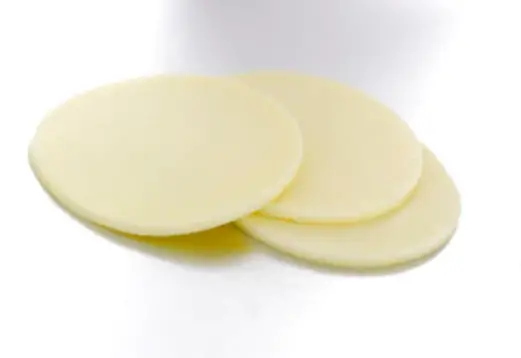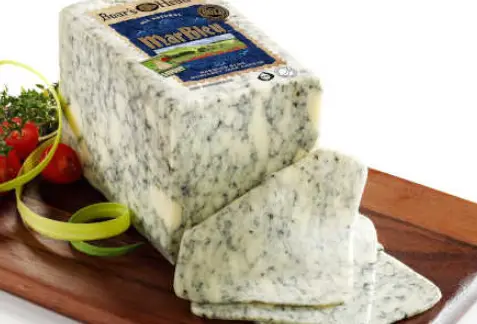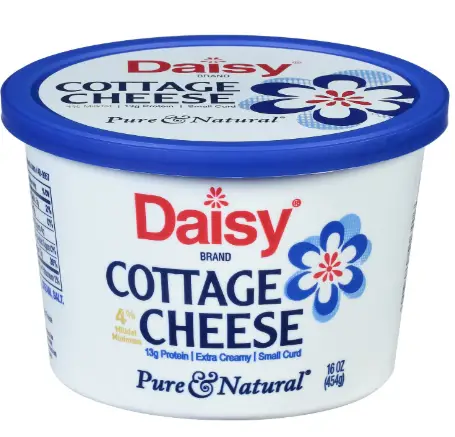Direct Answer: In terms of taste, texture, and freshness, deli-sliced cheese usually comes out on top. However, pre-sliced cheese wins in terms of convenience and shelf life.
Deli sliced cheese refers to cheese blocks sliced at a deli counter, often found in grocery stores or specialty cheese shops. The slices are typically fresh, cut on demand, and you can request your preferred thickness. On the other hand, pre-sliced packaged cheese is commercially sliced and packaged, available in uniform thickness, and conveniently ready to use. Both types cater to different needs, preferences, and situations, making the choice between them a matter of much more than just taste.
Understanding Deli-Sliced Cheese

Deli-sliced cheese is a pasteurized process cheese, typically derived from melting at least one “real” cheese, like cheddar or Colby. This often includes additives that enhance taste, texture, or presentation, offering a customizable cheese experience tailored to your palate.
The cheese-making process begins with milk. The milk is heated and then mixed with a starter culture, which is a group of specific bacteria that ferment lactose, the sugar in milk, into lactic acid. This acidifies the milk, creating a favorable environment for coagulation.
Unwrapping Pre-Sliced Cheese

Pre-sliced cheese, as the name suggests, is the cheese that has been pre-cut into individual slices and is typically packaged for retail sale. This style of cheese is renowned for its convenience, uniformity, and ease of use, making it a popular choice for quick meals and snacks.
Pre-sliced cheese is commonly made from processed cheese. The process of creating this type of cheese involves melting one or more types of “real” cheese, such as cheddar or Colby, with additional ingredients like water, milk fats and proteins, salts, and emulsifiers. This combination helps to stabilize the cheese, allowing it to maintain its consistency and melt evenly when heated.
Deli-Sliced Cheese vs Pre-Sliced Cheese
Deli-sliced cheese and pre-sliced cheese vary in several areas such as taste, texture, freshness, ingredients, nutritional facts, convenience, hygiene, quality, price, shelf life, and availability. Here’s a closer look at each factor:
Taste: Deli-sliced cheese often tastes fresher and has a more intense flavor because it’s cut from a block of cheese upon your request. Pre-sliced cheese is typically more processed, which can result in a milder taste.
Texture: The texture of deli-sliced cheese can be superior because it hasn’t been packaged for long periods. Pre-sliced cheese may sometimes have a more rubbery texture due to additives that keep slices from sticking together.
Freshness: Deli-sliced cheese is typically fresher as it’s sliced when you order it. Pre-sliced cheese is sliced and packaged in a factory setting, so it may not be as fresh.
Ingredients: Deli-sliced cheese usually contains fewer additives and preservatives compared to pre-sliced cheese, which often contains stabilizers to maintain slice integrity and prevent them from sticking together.
Nutritional Facts: Nutrition can vary widely based on the type of cheese. However, pre-sliced cheese may contain more sodium and other additives.
Convenience: Pre-sliced cheese wins on convenience. It’s ready to use and consistently sliced. Deli-sliced cheese requires a trip to the deli counter and waiting for it to be sliced.
Hygiene: Both types should adhere to strict food safety standards. However, some might argue that pre-sliced cheese is more hygienic as it’s sliced and packaged in a controlled environment.
Quality: Deli cheese is often of higher quality, with fewer additives and more flavor variety.
Price: Pre-sliced cheese can sometimes be more cost-effective, while deli-sliced cheese can be pricier due to its perceived higher quality and freshness.
Shelf Life: Pre-sliced cheese often has a longer shelf life due to added preservatives. Deli-sliced cheese should ideally be consumed within a few days of purchase.
Availability: Pre-sliced cheese is e widely available in most supermarkets, while deli-sliced cheese requires a store with a dedicated cheese counter.
Remember, these are generalizations and can vary depending on the specific cheese type, brand, and store policies. Always read product labels if you’re concerned about specific ingredients or nutritional information.
Pros And Cons Of Deli-Sliced Cheese
As with any food choice, deli-sliced cheese comes with its own set of advantages and disadvantages.
Pros :
- Taste and Texture: Deli-sliced cheese typically offers a more robust and authentic flavor compared to pre-sliced varieties. The texture also tends to be creamier and more natural.
- Customizable Thickness: When you buy deli-sliced cheese, you have the freedom to choose the thickness of your slices, allowing you to tailor your cheese to your specific needs or preferences.
- Variety: Delis often carry a broader selection of cheeses from around the world, providing more options for gourmet and specialty cheeses.
- Freshness: Deli-sliced cheese is typically fresher than pre-sliced cheese since it’s sliced on demand.
Cons :
- Shorter Shelf Life: Deli-sliced cheese doesn’t last as long as pre-sliced cheese because it’s exposed to air when sliced, which can lead to faster spoilage.
- Time-Consuming: Getting cheese sliced at the deli can be a bit time-consuming, especially during peak hours.
- Inconsistent Slice Thickness: Unless you’re dealing with a highly skilled deli worker, the slice thickness might not be as consistent as with pre-sliced cheese.
- Storage: Deli-sliced cheese often requires more careful storage to maintain freshness and prevent the slices from sticking together.
Pros And Cons Of Pre-Sliced Cheese
Pros :
- Convenience: The key selling point of pre-sliced cheese is its convenience. The slices are ready to use straight from the package, saving you time and effort.
- Uniformity: Each slice is the same size and thickness, ensuring consistency in your sandwiches, burgers, or other dishes.
- Longer Shelf Life: Thanks to its sealed packaging, pre-sliced cheese typically has a longer shelf life than deli-sliced cheese. It’s also easier to store and takes up less space in the fridge.
- Hygiene: Since pre-sliced cheese is packaged in a controlled environment and isn’t handled as much as deli-sliced cheese, it can be a more hygienic option.
Cons :
- Taste and Texture: Pre-sliced cheese may not offer the same depth of flavor or creamy texture as deli-sliced cheese due to the additional processing.
- Less Variety: You might find fewer options for pre-sliced cheese, particularly when it comes to gourmet or specialty varieties.
Deli-Sliced Cheeses
While indulging in cheese is one of life’s simple pleasures, not all cheeses are created equal in terms of nutritional value. Some cheeses provide significant health benefits due to their nutrient content, while others are best enjoyed in moderation due to high fat and sodium levels. Here are some of the healthiest deli-sliced cheeses:

Mozzarella: Mozzarella, especially the low-moisture, part-skim variety, is a great healthy choice. It’s high in protein and calcium, and lower in fat and calories compared to many other cheeses. Moreover, Mozzarella is rich in probiotics, which promote gut health.

Blue Cheese: Blue cheese is noted for its strong flavor, which means a little goes a long way. It’s a good source of protein and calcium, and it also contains a unique type of mold that has been shown to have anti-inflammatory properties.
Feta: Feta is a brined cheese that’s high in protein and calcium. It’s lower in fat compared to many other cheeses, making it a healthier choice. Furthermore, Feta is a source of probiotics, and it’s rich in phosphorus and vitamin B12.

Cottage Cheese: While not typically available as deli-sliced due to its crumbly texture, cottage cheese is an exceptionally healthy cheese option. It’s packed with protein, which makes it a satisfying snack or addition to meals. Cottage cheese is also a good source of calcium, phosphorus, and selenium.
FAQs
Are all sliced cheese processed?
Not necessarily. While most pre-sliced cheese is processed for convenience and longevity, deli-sliced cheese can often be a slice of the “real” cheese.
Which cheese tastes better?
This is subjective and depends on individual taste preferences.
Can I customize the thickness of the pre-sliced cheese?
Pre-sliced cheese generally comes in a standard thickness. For customizable thickness, opt for deli-sliced cheese.
How do I store deli-sliced cheese and pre-sliced cheese?
Both should be refrigerated. Deli-sliced cheese is best used within a few days, while pre-sliced cheese can last for several weeks, thanks to its packaging.
Why is the Sliced Cheese in the Fridge All Moldy?
Cheese can grow mold when it’s been stored improperly or kept for too long. To avoid this, keep your cheese refrigerated and try to consume it within the recommended time frame.
Can you make a cheese sauce with processed cheese?
Yes, processed cheese can melt smoothly, making it a good choice for cheese sauces.
Conclusion
Both deli-sliced cheese and pre-sliced cheese have distinct attributes that can cater to different consumer needs. Deli-sliced cheese, renowned for its freshness, customizable thickness, and broad variety, tends to be perceived as higher in quality, despite potentially costing more and having a shorter shelf life. Conversely, pre-sliced cheese is celebrated for its convenience, consistency, and longer shelf life, even though it may contain additional preservatives and lack the rich flavor profiles often found in deli cheeses. The ultimate choice between the two often boils down to individual preferences, dietary needs, and specific usage, suggesting that both varieties can find a place in different culinary contexts.
Key Points Summary :
- Deli-sliced cheese offers superior taste, texture, and freshness
- Pre-sliced cheese wins on convenience, hygiene, and shelf life
- Both types have similar nutritional values
- Personal preference plays a significant role in deciding the “better” cheese
- Proper storage is vital to maintain cheese quality and prevent mold.

John Hebdon is a food enthusiast, passionate chef, and author of various articles and blog posts related to food and cooking. With a deep love for all things culinary, John’s blog serves as a platform to share his extensive kitchen experiences with a broader audience.
In addition to his culinary expertise, John has a flair for writing and a natural ability to share his passion for food with others. His articles and blog posts are informative, engaging, and packed with practical tips for readers of all skill levels.
As a food enthusiast and writer, John is always on the lookout for new and exciting culinary experiences. Whether it’s trying out a new restaurant, experimenting with a new recipe, or simply sharing a favorite dish with friends and family, John is always eager to explore and share the world of food with others.







